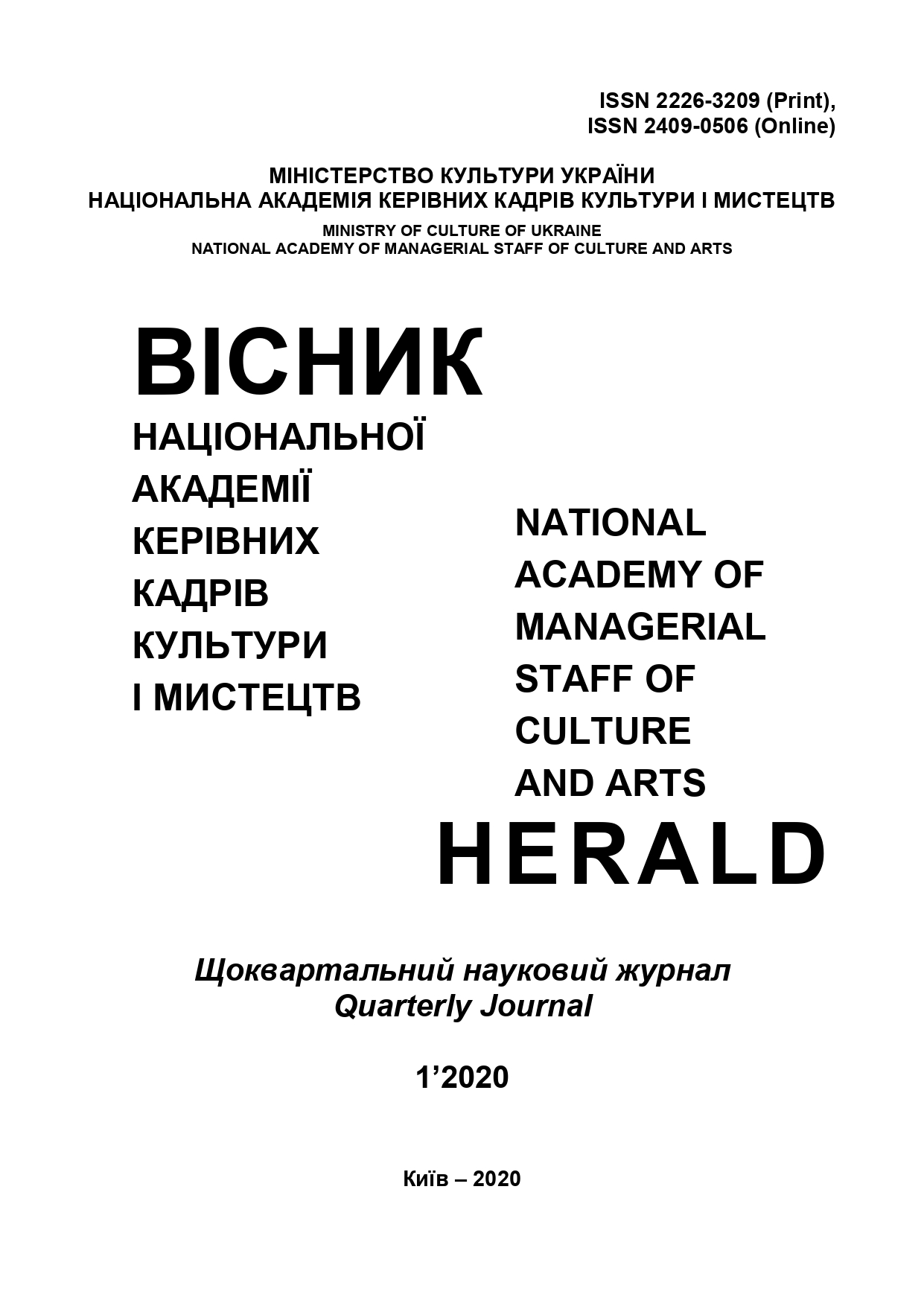Міжкультурна комунікація в контексті глобалізації та її вплив на самовизначення українців Закарпаття
Intercultural communication in the context of globalization and its impact on the self-definition of Ukrainians of the Transcarpathia
Author(s): Orest KrasivskyySubject(s): Communication studies, Sociology of Culture, Globalization
Published by: Національна академія керівних кадрів культури і мистецтв
Keywords: intercultural communication; Transcarpathia; glocalization; globalization; deterritorisation; the context of cultures;
Summary/Abstract: The purpose of the article is to analyze current scientific trends in the field of intercultural communication in the context of globalization and its impact on the self-determination of Transcarpathian Ukrainians. The methodology of the study is to apply a comparative, historical, logical, analysis and synthesis of methods that allow to reveal and analyze certain trends of intercultural communication in Transcarpathia and its impact on the identification of citizens in order to find a dynamic view of the development of intercultural communication in the multi-ethnic region. The scientific novelty of the work is to carry out a theoretical analysis of current trends in intercultural communication in Transcarpathia, taking into account the global trend towards globalization. An analysis of current trends provides a basis for a better understanding of intercultural processes in a multi-ethnic society, its perspectives, and threats. Conclusions. Understanding the development of paradigmatic systems based on the intercultural communication of the region gives a new point of reference for reform activities, in the direction of bringing the region closer to national interests. This should be taken into account when shaping the state's communication strategy in the context of international integration and globalization, which includes the ability to intercultural interaction within the region where we see global trends in intercultural communication, such as globalization, and deteritization with a clear bias in highly contextual society. Intercultural communication as a whole is still characterized by low-context communication (as opposed to communication within the native culture): communicators intuitively understand that their interlocutors - foreigners - do not have a good knowledge of the local cultural context.
Journal: Вісник Національної академії керівних кадрів культури і мистецтв
- Issue Year: 2020
- Issue No: 1
- Page Range: 8-13
- Page Count: 6
- Language: Ukrainian

